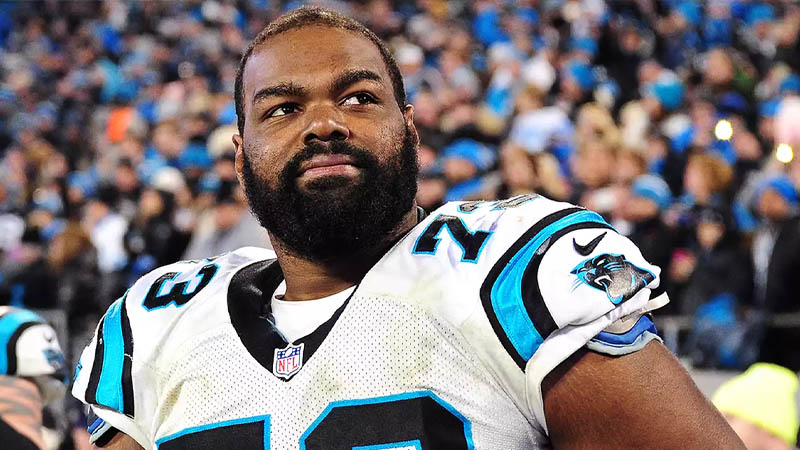Michael Oher, the former NFL player whose life story became widely known through the book and movie “The Blind Side,” has spoken publicly for the first time about the lawsuit he filed against the Tuohy family, who took him in as a teenager.
Oher’s story was famously depicted in the 2006 book by Michael Lewis and the 2009 film starring Sandra Bullock, which portrayed the Tennessee family helping the young football star rise from a troubled childhood in foster care to professional football success. The narrative suggested that Oher had been adopted by the Tuohys at the age of eight, but in reality, he was placed under a legal conservatorship.
This conservatorship, which was terminated by a Tennessee court in September 2023, is at the center of Oher’s legal battle. He claims that he is still fighting to recover a significant portion of the money that his image and likeness generated for the Tuohys through their public appearances. According to The New York Times Magazine, Leigh Anne Tuohy made tens of thousands of dollars from speeches she gave about Oher, capitalizing on his story due to the conservatorship.
Despite the ongoing legal dispute, Oher acknowledges that not all of his time with the Tuohys was negative. “Honestly, it was great. I had a bed to stay on. I was eating good. They got me a truck,” Oher shared in the interview published on Sunday.
However, Oher also expressed feelings of being misrepresented and cheated in other ways. He pointed out that the film version of “The Blind Side” strongly implied that he was not very intelligent, a portrayal that he believes damaged his prospects during the NFL draft. “The N.F.L. people were wondering if I could read a playbook,” Oher explained, attributing this perception to the movie’s portrayal of him, which he says likely cost him a higher draft position and the millions that would have come with it.
In his first discussion about the lawsuit, Oher emphasized that his legal battle is not about money. He stated that he still has “millions of dollars” from his NFL career and is not financially struggling. Instead, Oher said he continues to suffer from the false narratives that have followed him, particularly those that were solidified during his time in the NFL. “It was as soon as I got there, I was defined,” Oher said, explaining that he didn’t file the lawsuit sooner because his career left him with little time to address these issues.
In response to the lawsuit, the Tuohy family accused Oher of extortion through text messages and expressed feeling “devastated” in a statement to a Memphis newspaper. They have not commented on Oher’s recent interview with The New York Times Magazine.


